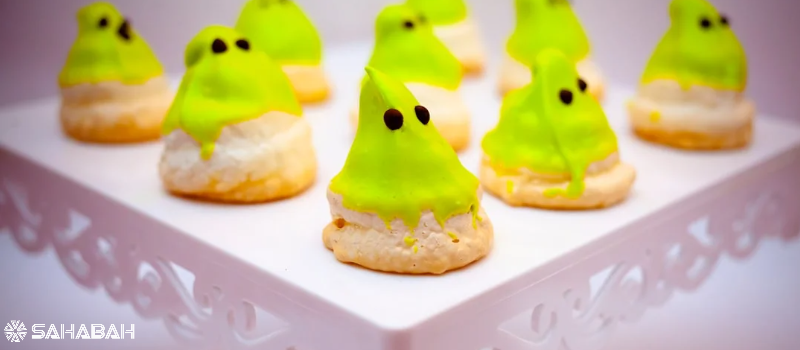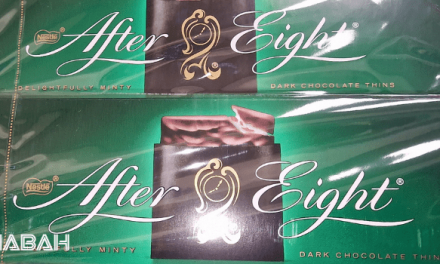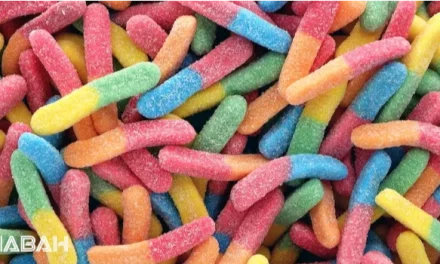Peeps® are a popular marshmallow candy treat manufactured by Just Born in the USA. With their fluffy texture and sweet flavor, Peeps have become a beloved part of many Easter and Springtime celebrations.
However, for those following a halal diet according to Islamic law, the permissibility of eating Peeps may be in question. Peeps contain pork-derived gelatin, which would make them haram or forbidden. Peeps are also not certified halal.
So can Muslims safely eat Peeps, or should they opt for certified halal marshmallow alternatives? Let’s take a closer look.
What Does Halal Mean?
Halal is an Arabic word meaning “permissible” or “lawful” within Islamic law. When it comes to food, for something to be halal means it must comply with Islamic dietary restrictions:
- Pork and alcohol are strictly prohibited
- Other animal products like beef or chicken must come from animals slaughtered according to zabiha rituals
- No meat from carnivorous animals
- Dairy, vegetables, fruit, and seafood are generally halal
For a food product to be certified halal means its ingredients and production methods have been verified by an accredited halal organization. This provides assurance to Muslim consumers that the item meets Islamic guidelines.
Some examples of major halal certifiers in the USA:
- Islamic Food and Nutrition Council of America (IFANCA)
- Islamic Services of America (ISA)
- Halal Transactions of Omaha
Without this certification, observant Muslims may avoid eating the product due to uncertainty over its halal status.
Peeps Ingredients – Should We Be Concerned?
The full ingredient list Peeps® Marshmallow Candies as provided by the manufacturer Just Born is as follows:
Sugar, Corn Syrup, **Gelatin**, Dextrose, Natural and Artificial Flavors, Yellow 5&6, Red 40, Blue 1 (provides color), Carnuaba **Wax** and Citric Acid (to prevent sticking).
The concerning ingredient here is gelatin. Traditional gelatin is derived from the bones and skins of pigs and cows. If the gelatin in Peeps came from pork, it would absolutely mean Peeps are haram.
Just Born does not disclose the exact source of the gelatin used in Peeps. So there is no way for Muslim consumers to know if it is from an acceptable halal animal source like beef, or an unpermitted pork origin.
No Halal Certification for Peeps
Peeps® do not carry any halal or kosher certification. There’s no evidence that the ingredient sourcing or manufacturing process was overseen by a halal agency.
In contrast, some major candy brands like Skittles do carry Islamic certification in certain markets. For example, this statement from is found on halal Skittle packages intended for Muslim consumers:
“Manufactured under the supervision of the Kashruth Division of the Union of Orthodox Jewish Congregations. Suitable for VEGETARIANS. Product is DAIRY FREE and OU PAREVE thus suitable for consumers requiring a Kosher or Halal diet.”
The lack of any similar certification on Peeps is concerning. It likely deters many observant Muslims from consuming them.
Final Verdict: Peeps Are Not Halal Due to the Gelatin
Given the undisclosed pork vs beef gelatin issue, and lack of halal certification, mainstream Muslim religious opinion would consider Peeps haram. Consuming them should be avoided by those adhering to an Islamic diet.
Certain lenient minority opinions within Islam may contend that a lack of certainty means Peeps could still be halal. However, most traditional Islamic scholars would argue this is unwise, stating clear evidence of permissibility must be established first.
When in doubt over ingredients or processing methods, avoiding such foods is the guideline recommended under Islamic law. So most Muslims would not consider Peeps halal currently.
Halal Alternatives: Certified Marshmallows & Vegan Options
Thankfully, observant Muslims desiring a Peeps-like treat can find certified options. Numerous halal marshmallow brands exists, often using bovine gelatin and carrying Islamic certification marks.
Additionally, vegetarian “marshmallows” can replicate the fluffy vanilla flavor and texture. These are typically made from plant gums or starches instead of gelatin. There’s a wide range of mainstream and gourmet vegan marshmallows. They provide a clearly halal, plant-based alternative.
So in summary – Peeps may be an iconic, beloved Easter candy, but they don’t meet Islamic dietary standards. Muslims should avoid them due to the questionable pork gelatin content. Those wanting a similar sweet snack can instead seek out verified halal marshmallow or vegan options.
Frequently Asked Questions: Are Peeps Halal?
According to Islamic dietary laws, Peeps are considered halal as they do not contain any haram ingredients such as gelatin derived from prohibited sources like pigs.
What makes Peeps halal?
Peeps are considered halal because they do not use gelatin derived from animals like pigs, which is prohibited in Islamic dietary laws.
Can I find halal Peeps in stores?
Yes, halal-certified Peeps are available in stores that cater to specific dietary requirements and restrictions.
Have Peeps done a great deal of research to ensure their halal status?
Yes, Peeps manufacturers have done a great deal of research to ensure that their products comply with halal requirements.
Do halal Peeps differ from regular Peeps?
Halal Peeps are made using ingredients that comply with Islamic dietary laws, so they may also cater to individuals with specific dietary preferences or restrictions.
Can I find more information about halal Peeps on social media?
Peeps may provide updates on their halal policy and products on their social media platforms like Facebook.
Are there any videos explaining the halal status of Peeps?
Peeps may have videos where they discuss the ingredients and processes used to ensure their products are halal.





